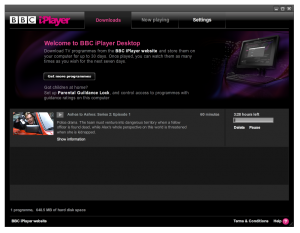It doesn’t bite – why is everyone panicking?
Last night I watched a programme on BBC Two called “The Virtual Revolution”, which was based on the “cost” of free facilities on the internet. It can be watched here (in the UK) on BBC iPlayer until next Saturday.
Basically it was talking about how we pay for free facilities on the internet (such as Google, YouTube, Facebook etc) with our identity rather than our hard earned cash. The programme was explaining to us how companies make vast amounts of money by providing services on the internet for free.
I believe that the main point that the programme was trying to put through was that the internet follows us and that it makes money from whatever information we feed into it. However, in some respects, I fail to see their argument.
With advertising, for example – they were talking about web sites using “cookies” to track what our interests are and to use them to follow all the details of our lives and stalk our personalities. However, that just isn’t true. None of the information collected by these sites is personally identifiable – websites aren’t allowed to collect data that might be identifiable to us without our permission. All the “cookies” do is make sure that what gets advertised to us is more of what we like. Besides, if you don’t like the idea of websites storing data about our interests – well then just turn “cookies” off. You can do that in all browsers and it will stop any data being collected.
I do, on the other hand, understand what they mean about this data problem in terms of social networking. People don’t understand what information they are putting on the internet – their photos, their interests, their friends. By posting this data on the internet, it is being archived for life – and possibly any longer. Social networking sites, such as Facebook, can keep personal data on their servers for as long as they want (I’m pretty sure, anyway) – unless people such as the Police or any other respectable authority deems otherwise. However, I totally agree with what Stephen Fry said – that we try to control the risks and use the free facilities to our advantages.
Nevertheless, I do think that people are overreacting to the internet. Internet advertising is something that has to be done for people to make money and using “cookies” to make advertising that little more pleasant is not a crime.
And the argument about “personal recommendations” just makes me laugh! I often walk into a shop and think, “wow, I wish this shop was a bit more suited to my taste”. With the internet, that can be done for me. I can log onto Amazon and have the website how I want it to be – with my stuff that I buy. Not the bestsellers or the hits – I just want the shop my way. I don’t care what everyone else buys.
So in summary, I think people should calm down a bit and realise how useful the internet is. Yes – there are a few risks with it – but as long as we understand the risks then there isn’t any problem. It’s like saying “I won’t drive my car because there’s a risk I might crash” – but you still drive it.
